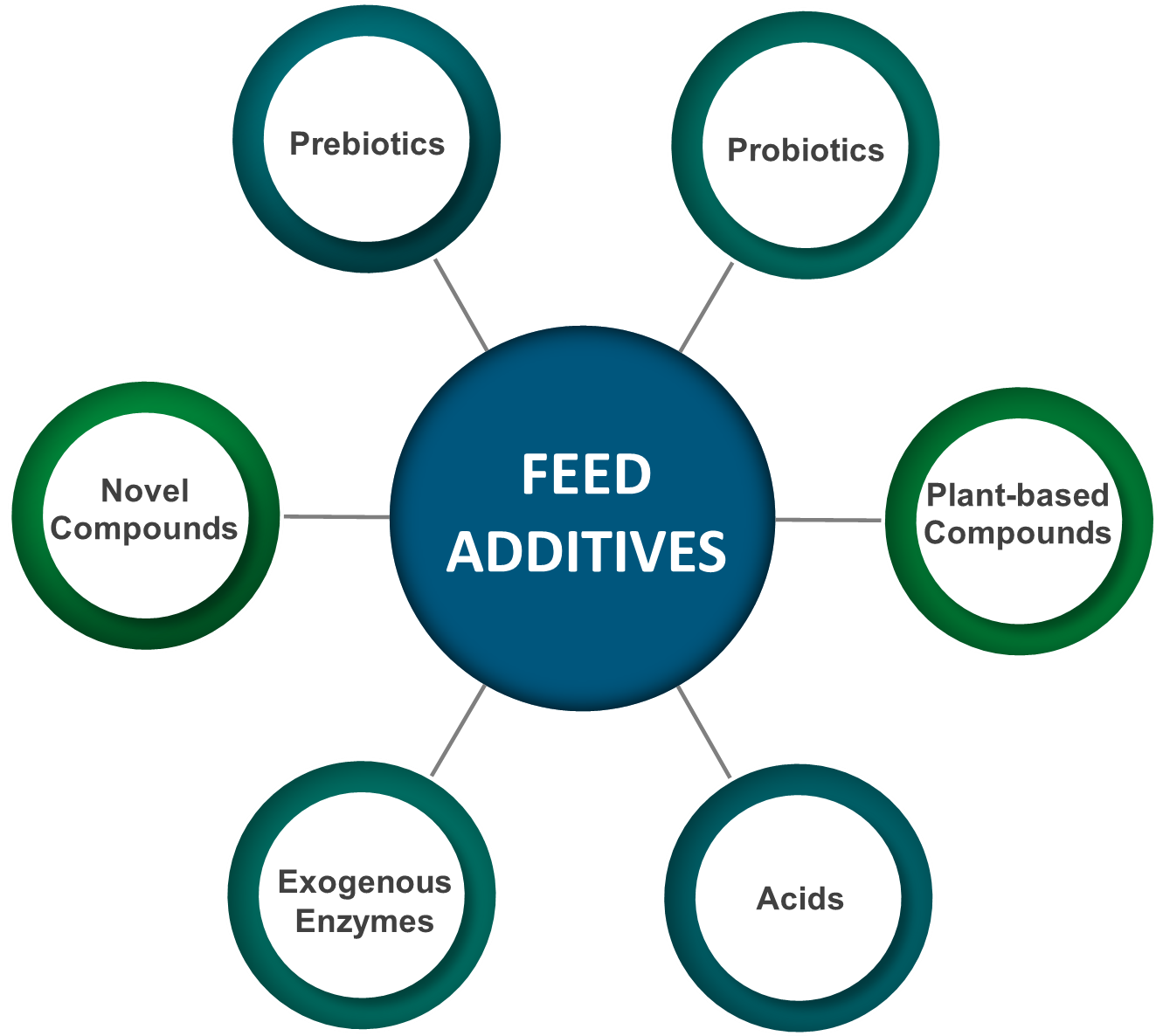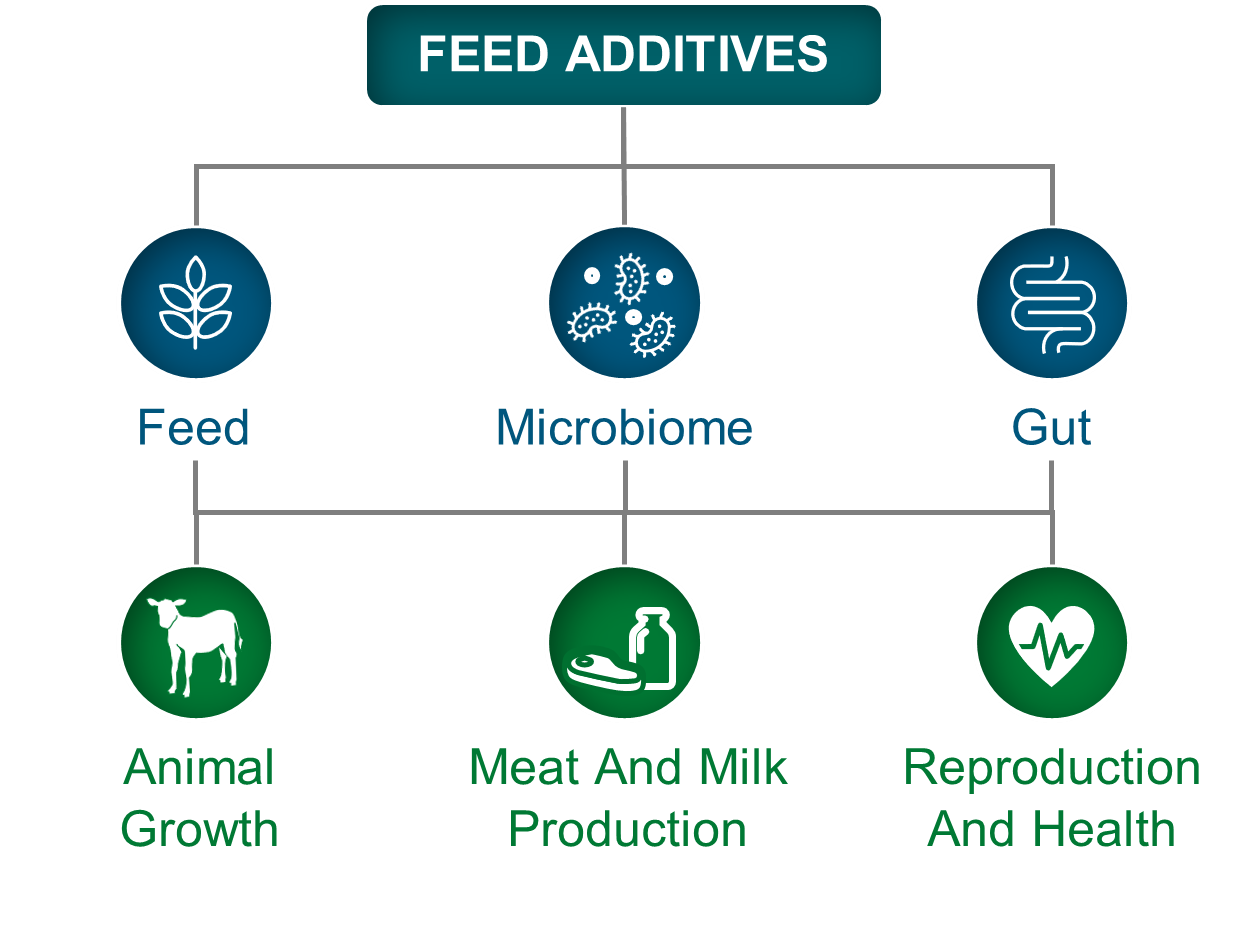On the go and want to download this PAC Fact for later?
What exactly are feed additives? How do they work? And why are they beneficial? Answering these questions can help you decide what additives are the best fit for your herd.
Feed additives are non-medicated, non-nutritive products that support feed efficiency, immunity, hormone function, cellular responses, native microbial communities, gut health, and pathogen inhibition. The primary types of feed additives include:

- Prebiotics (yeast culture and yeast cell wall): nonviable food components that benefit the animal.
- Probiotics (live yeast and live bacteria): live organisms that benefit the animal.
- Plant-based compounds (tannins, essential oils, extracts): bioactive compounds from plants that benefit the animal when applied to or are consumed by them.
- Acids (short and medium chain fatty acids): compounds that are acidic in nature that support animal health.
- Exogenous enzymes (amylase and cellulase): enzymes of bacterial or fungal origin that support feed digestion.
- Novel compounds (Egg antibodies and quorum sensing materials): products that do not fit neatly into the other categories that also support animal health and productivity.
How do feed additives work?
To better understand how feed additives work, we first need to talk about feed. Livestock feed is a direct source of macronutrients and micronutrients such as fat, protein, carbohydrates, vitamins, and minerals. These nutrients directly contribute towards animal health and productivity.
Feed additives do not provide essential nutrients directly to the animal. Instead, they interact with feedstuffs, microbes, and the gut to help animals get more nutrients out of their diet and optimize their immune system.
Why are they beneficial?
Feed additives are multipurpose tools that support animal performance—including growth, production efficiency, and reproductive success—and promote overall well-being.

To learn more about our customizable solutions or to see how we can help you find the best way forward, contact us.





